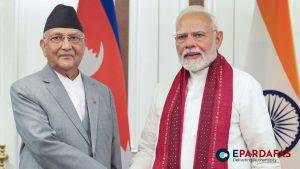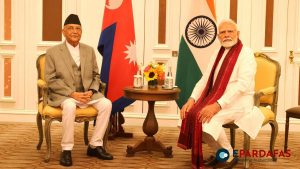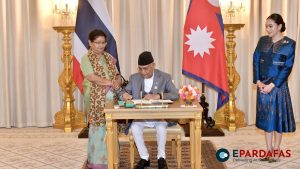
Jimmy Carter: The Peanut Farmer Turned Global Humanitarian, Dies at 100
Jimmy Carter, the peanut farmer from Plains, Georgia, who rose to prominence in the wake of the Watergate scandal and the Vietnam War to become the 39th President of the United States, has passed away at the age of 100. The longest-living former American president died peacefully on Sunday at his home in Plains, roughly 22 months after entering hospice care, surrounded by family. His death was confirmed by The Carter Center.
“Our founder, former U.S. President Jimmy Carter, passed away this afternoon in Plains, Georgia,” the center announced on the social media platform X. Tributes poured in from around the globe, with President Joe Biden mourning the loss of an “extraordinary leader, statesman, and humanitarian.” Biden highlighted Carter’s efforts to eradicate disease, promote peace, and champion civil and human rights as exemplary.
“To all young people and anyone searching for purpose and meaning in life: study Jimmy Carter, a man of principle, faith, and humility,” Biden said in a statement.
In remarks later that evening, Biden called it a “sad day” while reflecting on his five-decade friendship with Carter. He recalled Carter’s comfort during personal tragedies, particularly after the death of Biden’s son Beau. Biden also ordered a state funeral to honor Carter’s legacy.
A Life of Service and Faith
Born James Earl Carter Jr. on October 1, 1924, in Plains, Georgia, Carter’s early years were shaped by the rural farming community where he was raised. Though his family enjoyed relative affluence compared to their neighbors, Carter grew up amid the harsh realities of the segregated South. He often credited his upbringing—and the influence of Black caregivers and playmates—with instilling a lifelong commitment to equality and justice.
Carter graduated from the U.S. Naval Academy in 1946, embarking on a promising career as a submariner. However, he returned to Plains in the early 1950s to manage the family’s peanut business following his father’s death. This decision marked the beginning of a political journey that would see Carter rise from a Georgia state senator to the Governor of Georgia, and ultimately to the presidency in 1976.
The Presidency: Triumphs and Trials
Carter’s election as president came at a time of national turmoil, with Americans yearning for honesty and integrity after the Watergate scandal. Running as an outsider with a promise to restore trust in government, Carter narrowly defeated incumbent Gerald Ford. As president, Carter championed human rights, environmental conservation, and energy independence. His administration’s crowning achievement was brokering the Camp David Accords, a historic peace agreement between Egypt and Israel in 1978.
Yet, Carter’s presidency was marred by economic challenges, including double-digit inflation and an energy crisis, as well as the Iran hostage crisis. His approval ratings plummeted, and in 1980, he suffered a resounding electoral defeat to Ronald Reagan.
Reflecting on his presidency in later years, Carter acknowledged his shortcomings, including a tendency to micromanage, but maintained that his administration laid the groundwork for significant achievements in human rights and foreign policy.
Post-Presidency: A Legacy of Humanitarianism
Carter’s post-presidential years were unprecedented in their scope and impact. In 1982, he and his wife Rosalynn founded The Carter Center, a nonprofit organization dedicated to promoting democracy, human rights, and public health. The center’s initiatives ranged from monitoring elections in over 100 countries to nearly eradicating the Guinea worm disease.
Carter also became an outspoken advocate for peace, mediating international conflicts and challenging U.S. foreign policy when he believed it contradicted his principles. His efforts earned him the Nobel Peace Prize in 2002 for his “untiring effort to find peaceful solutions to international conflicts, to advance democracy and human rights, and to promote economic and social development.”
A Humble Life in Plains
Despite his global influence, Carter remained deeply rooted in Plains, living in the modest ranch house he built before his presidency. He continued teaching Sunday School at Maranatha Baptist Church well into his 90s, drawing visitors from around the world.
Carter often reflected on the joys and challenges of his long life. “I’m perfectly at ease with whatever comes,” he said in 2015 after undergoing treatment for cancer. “I’ve had a wonderful life. I’ve had thousands of friends, I’ve had an exciting, adventurous, and gratifying existence.”
A Legacy Remembered
Carter’s remarkable journey—from a humble peanut farmer to a Nobel laureate and global humanitarian—stands as a testament to the power of faith, perseverance, and service. As the world bids farewell to a towering figure of the 20th century, his life offers enduring lessons in humility, compassion, and the pursuit of justice.
Input From Different Agency and Broadsheet












Comments